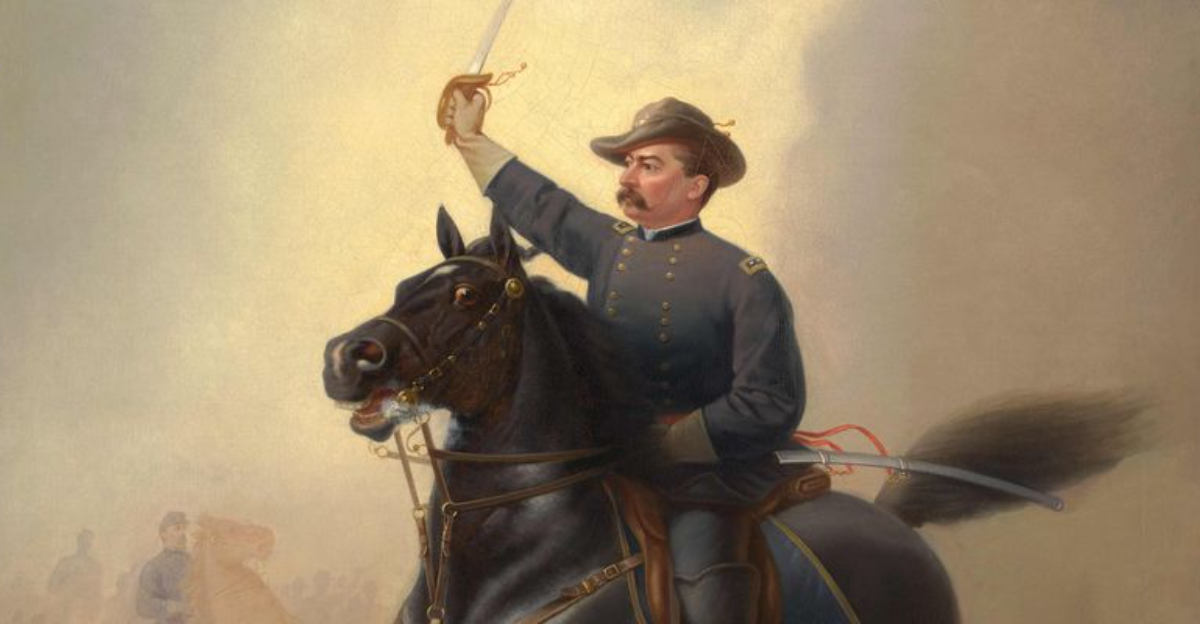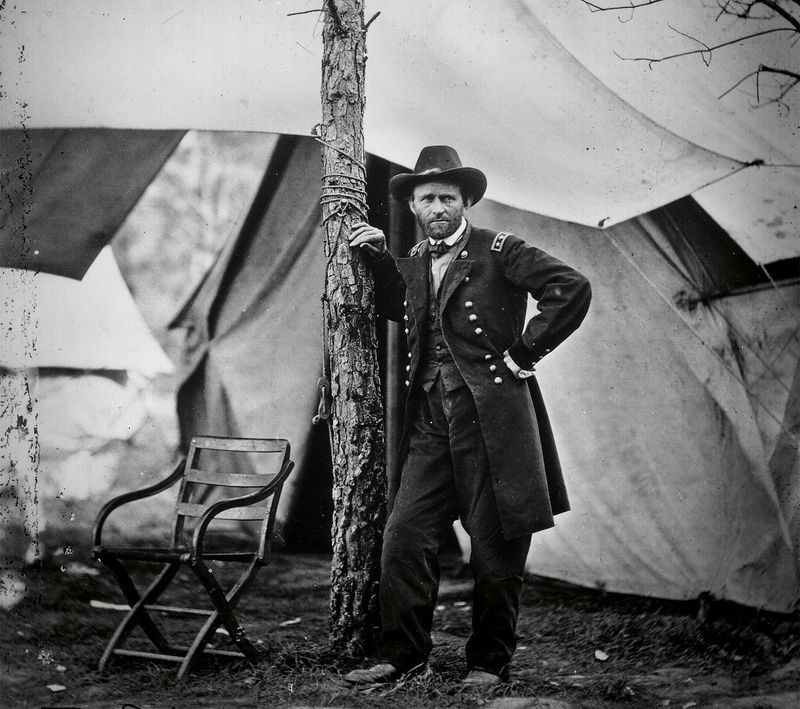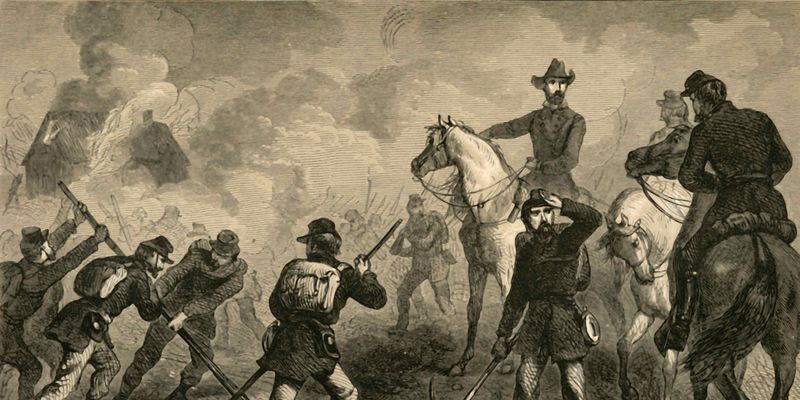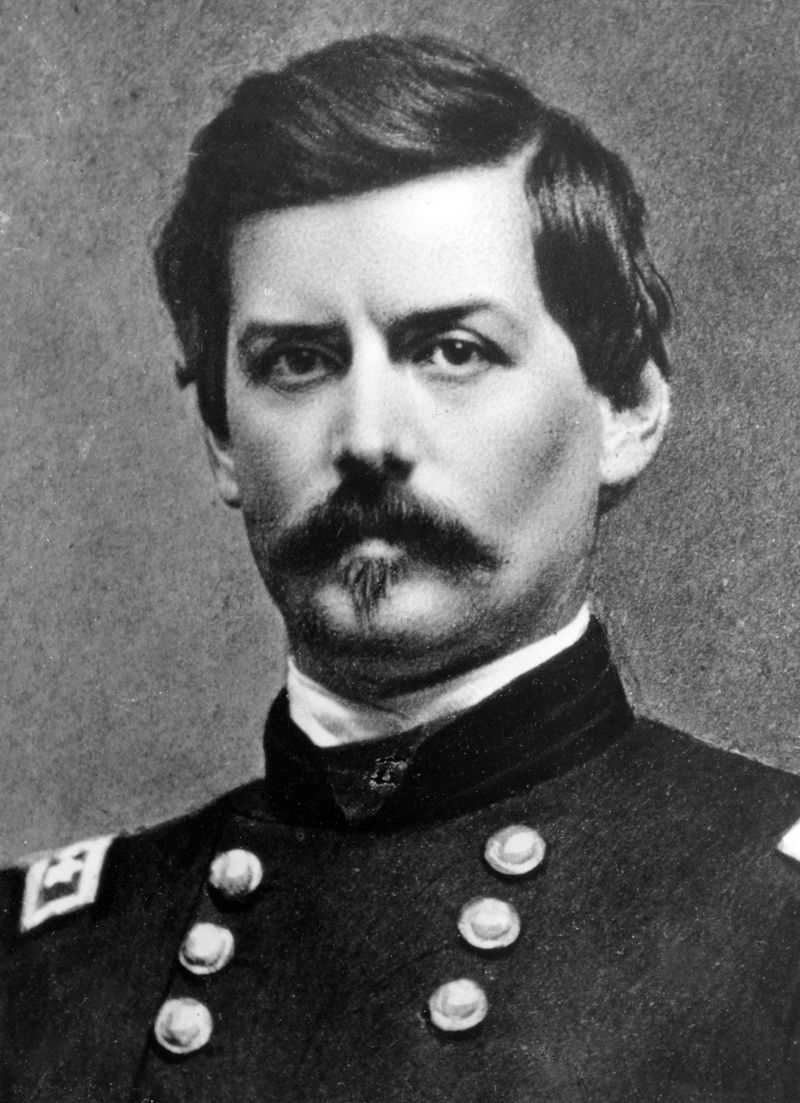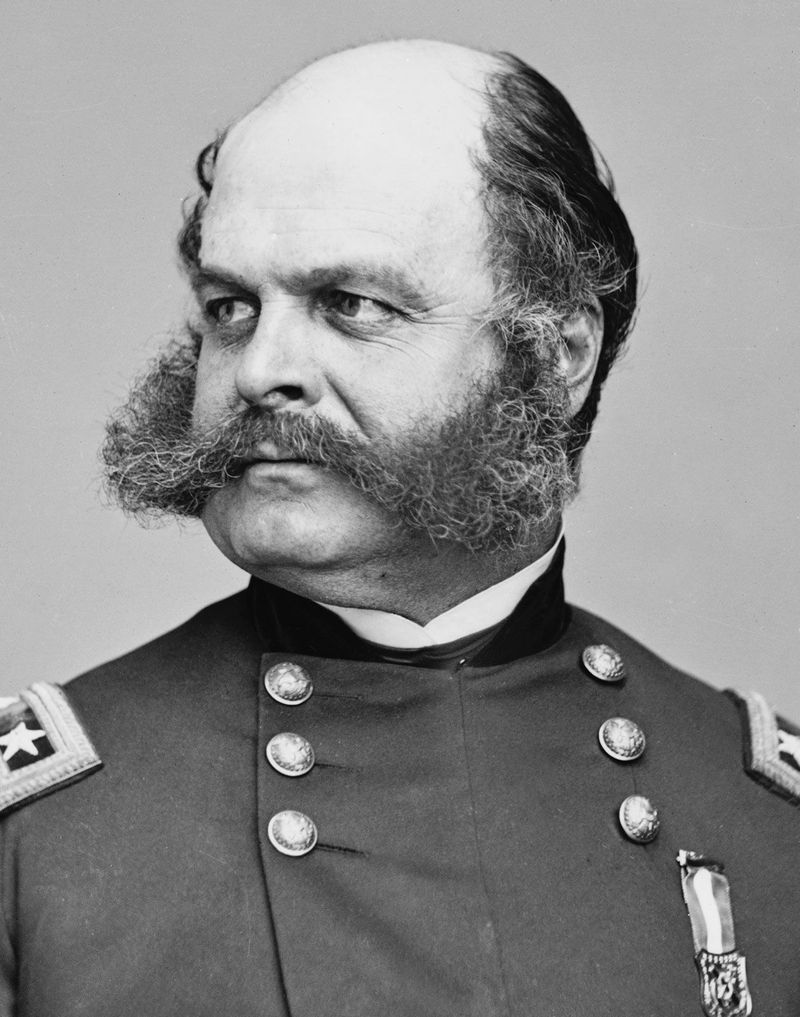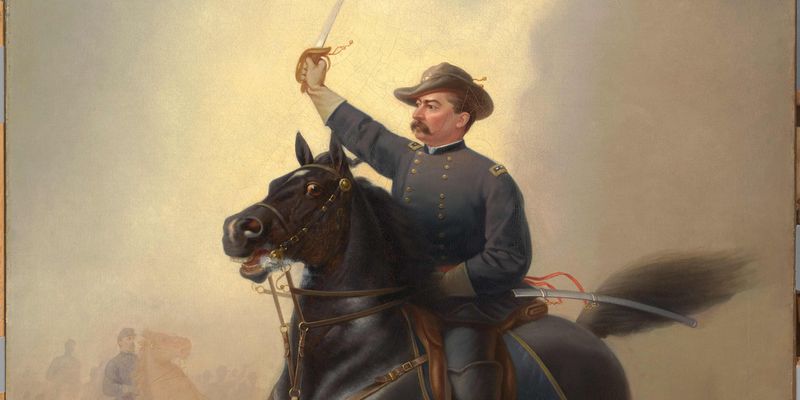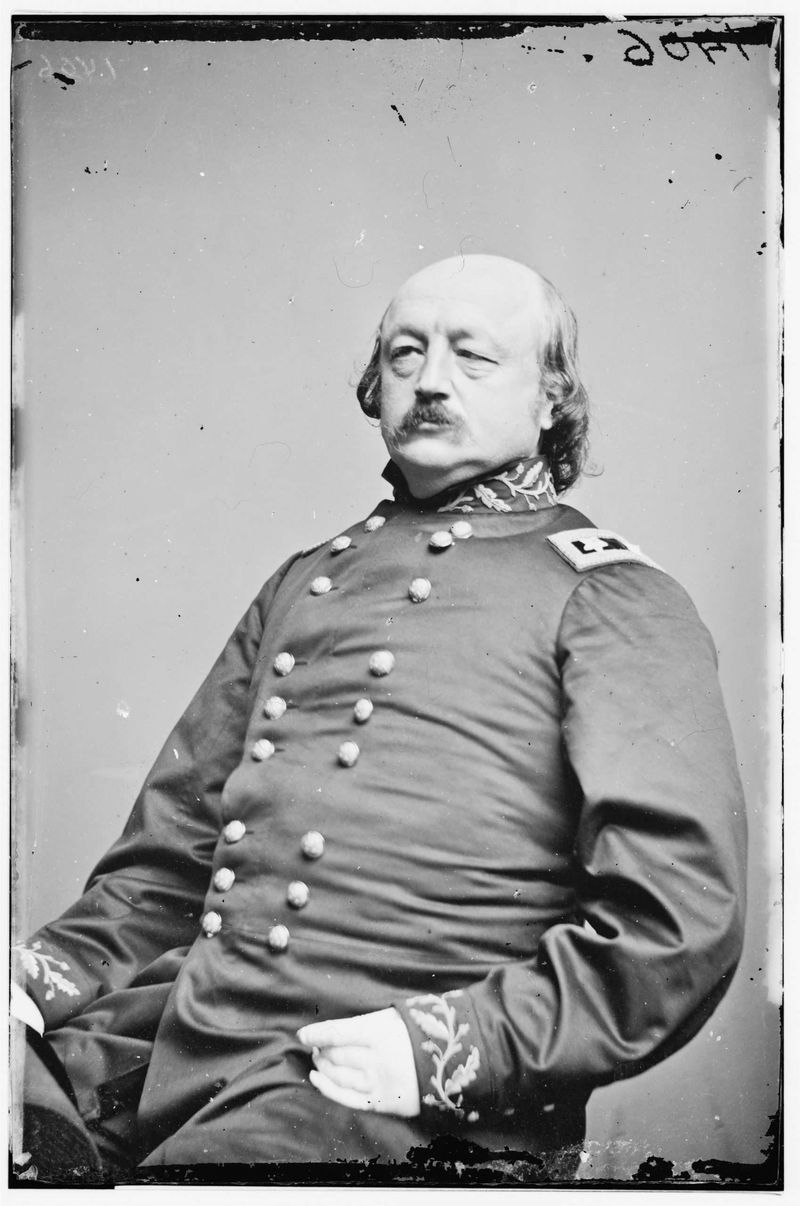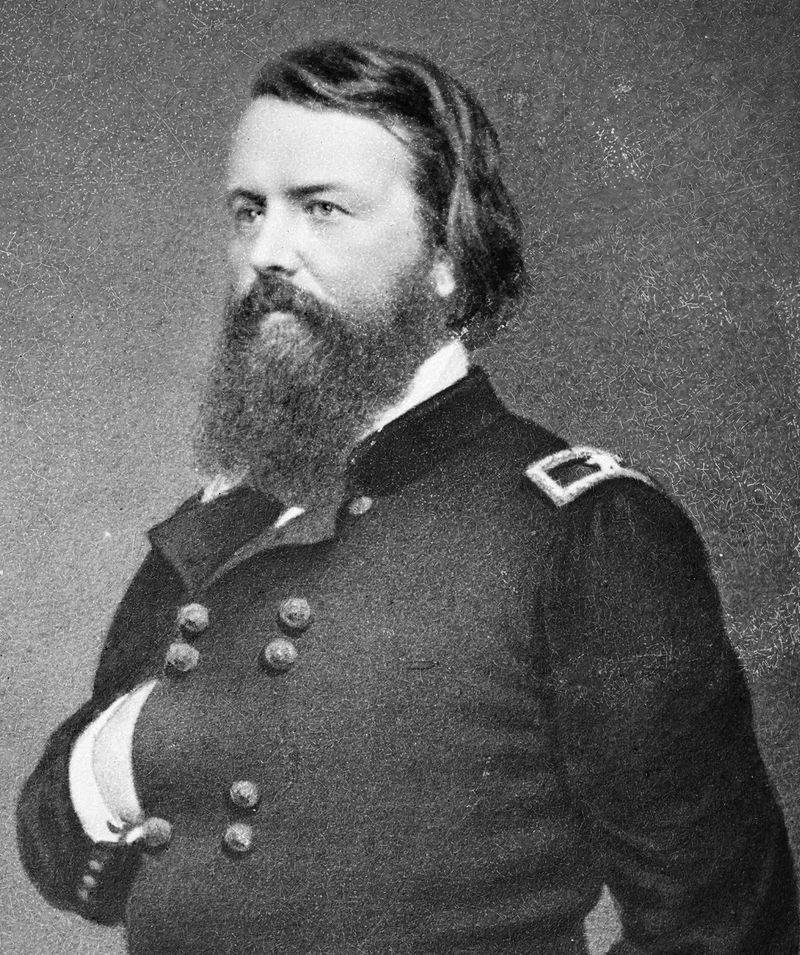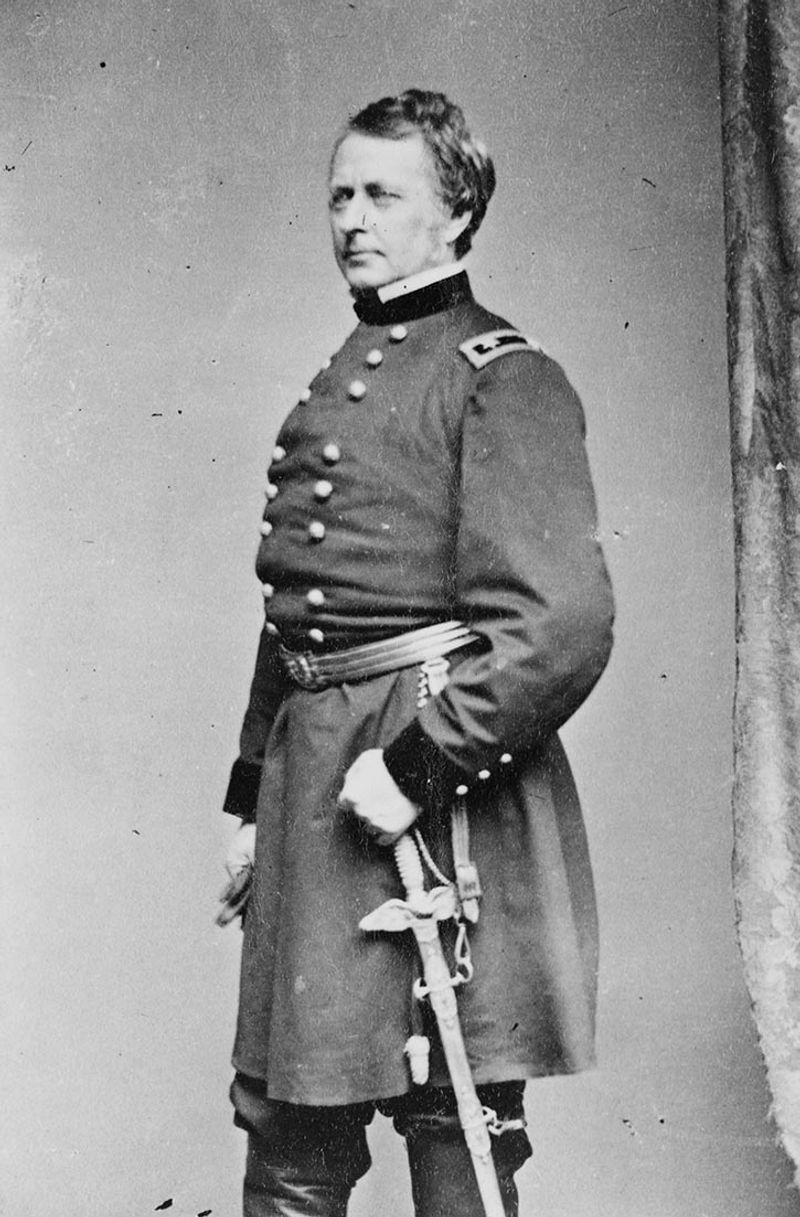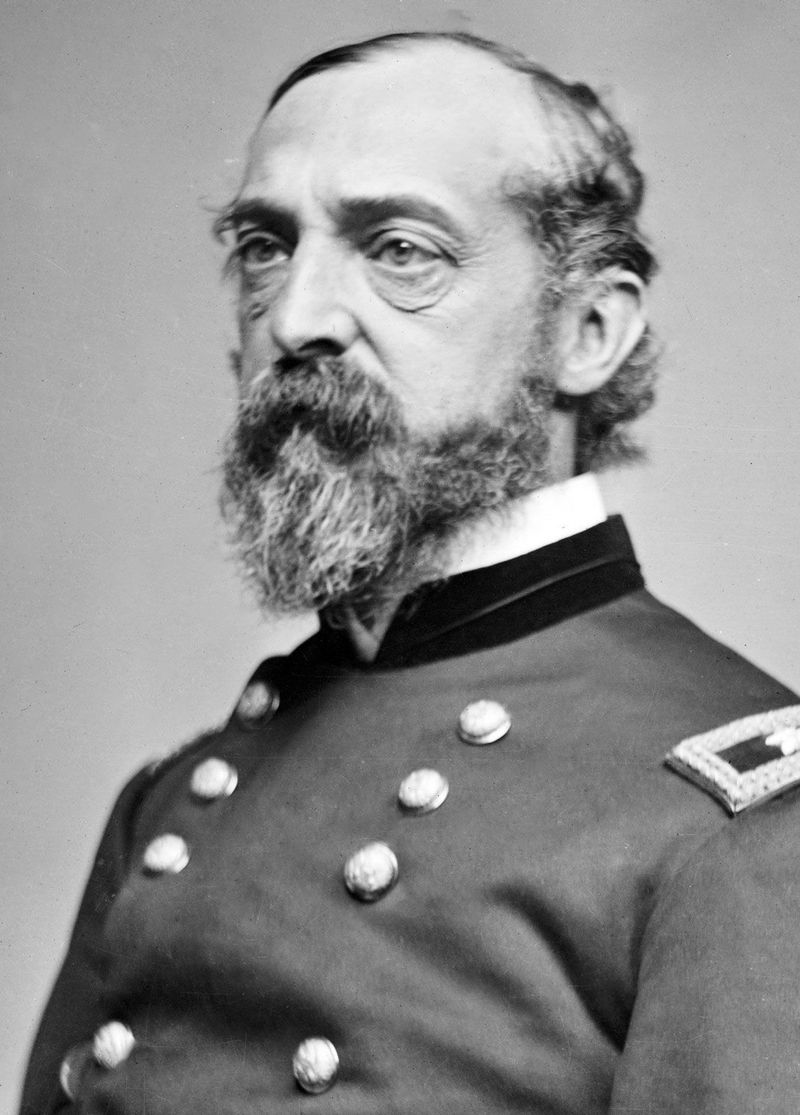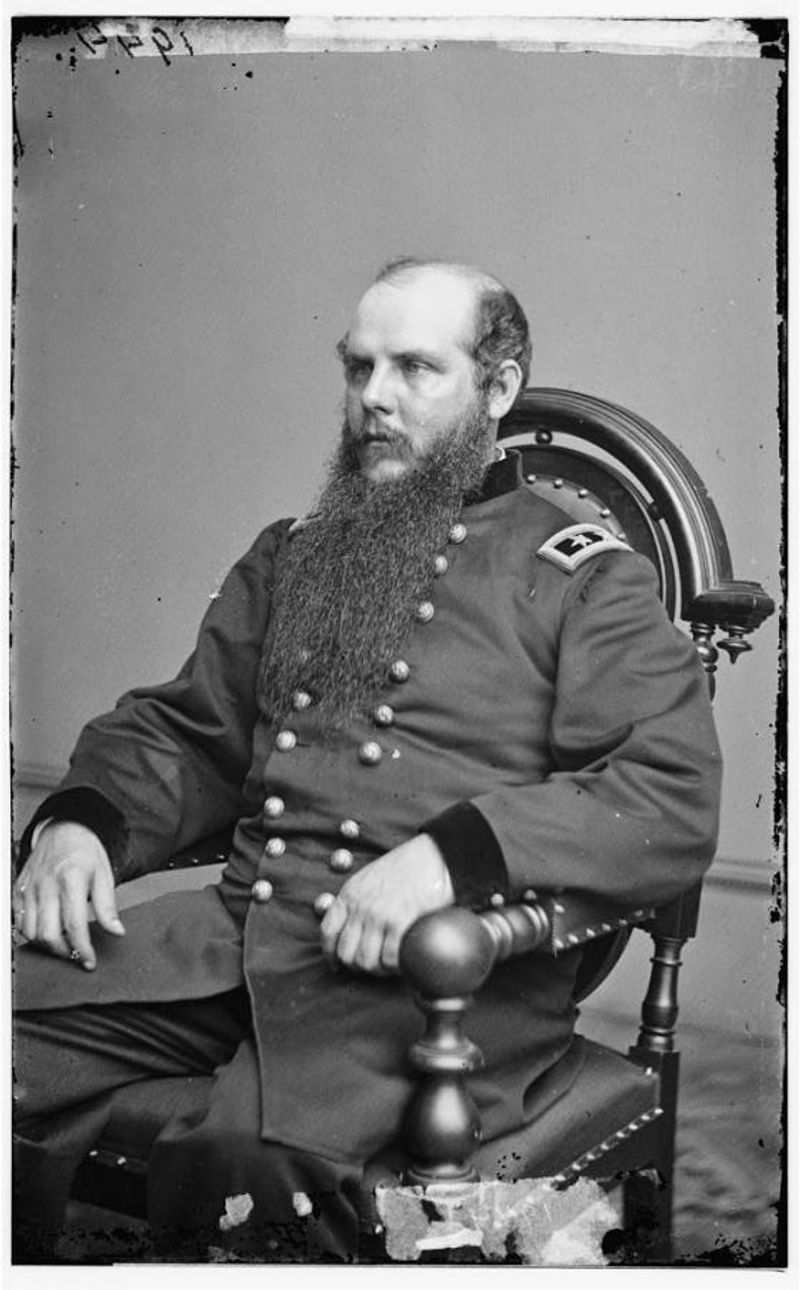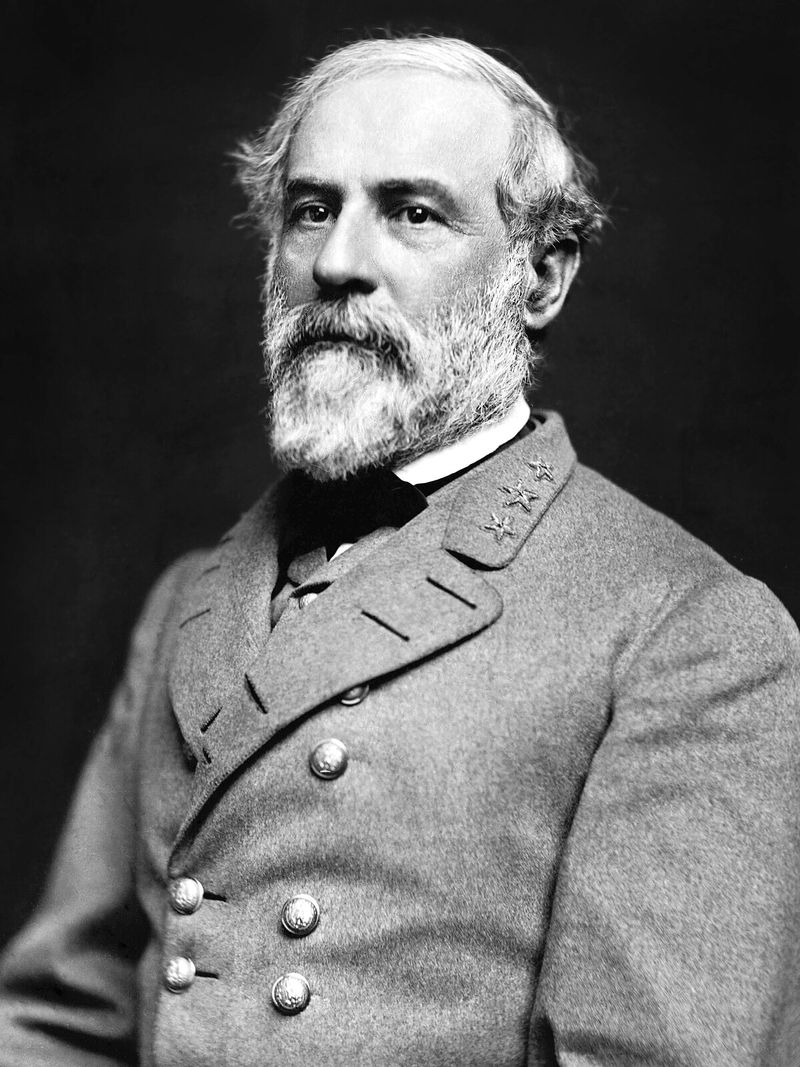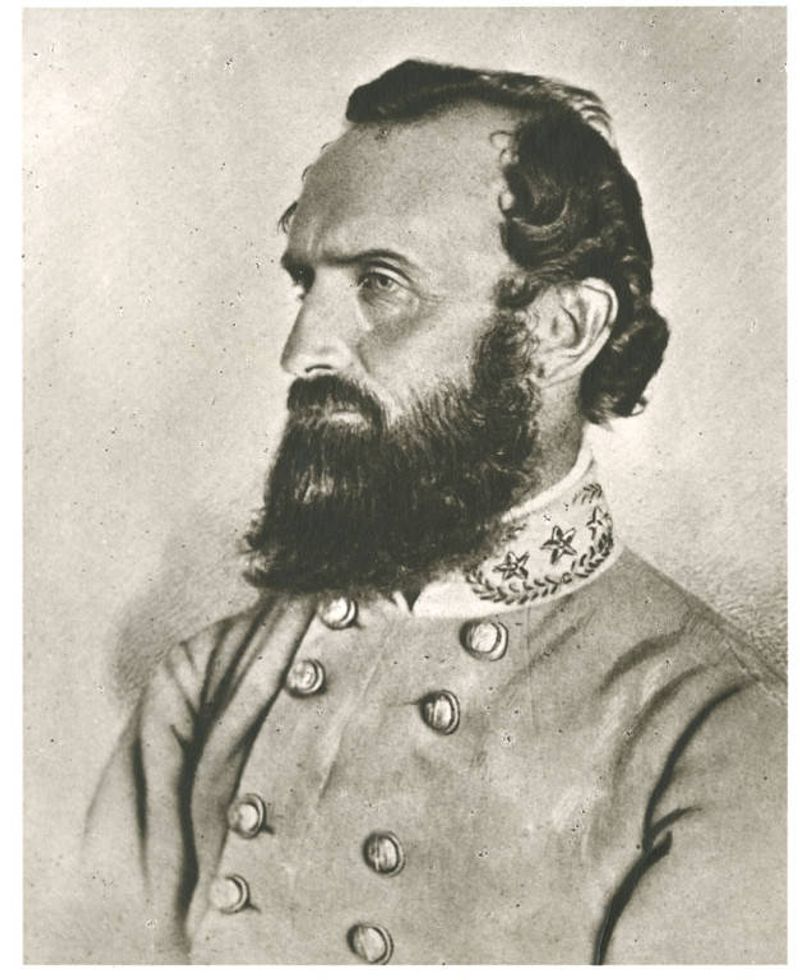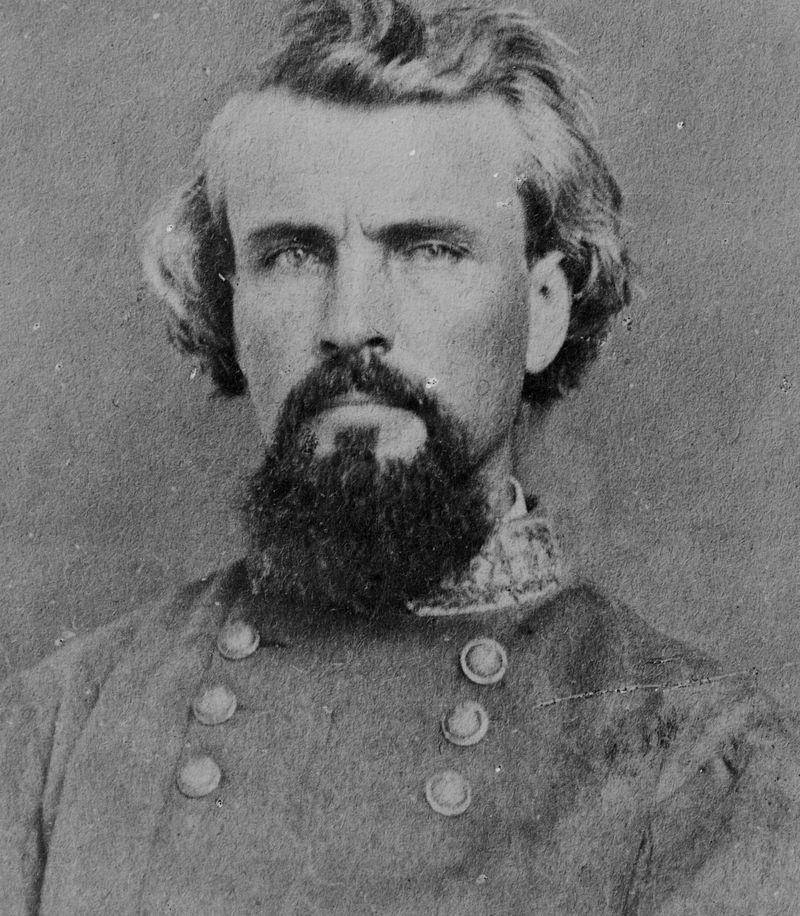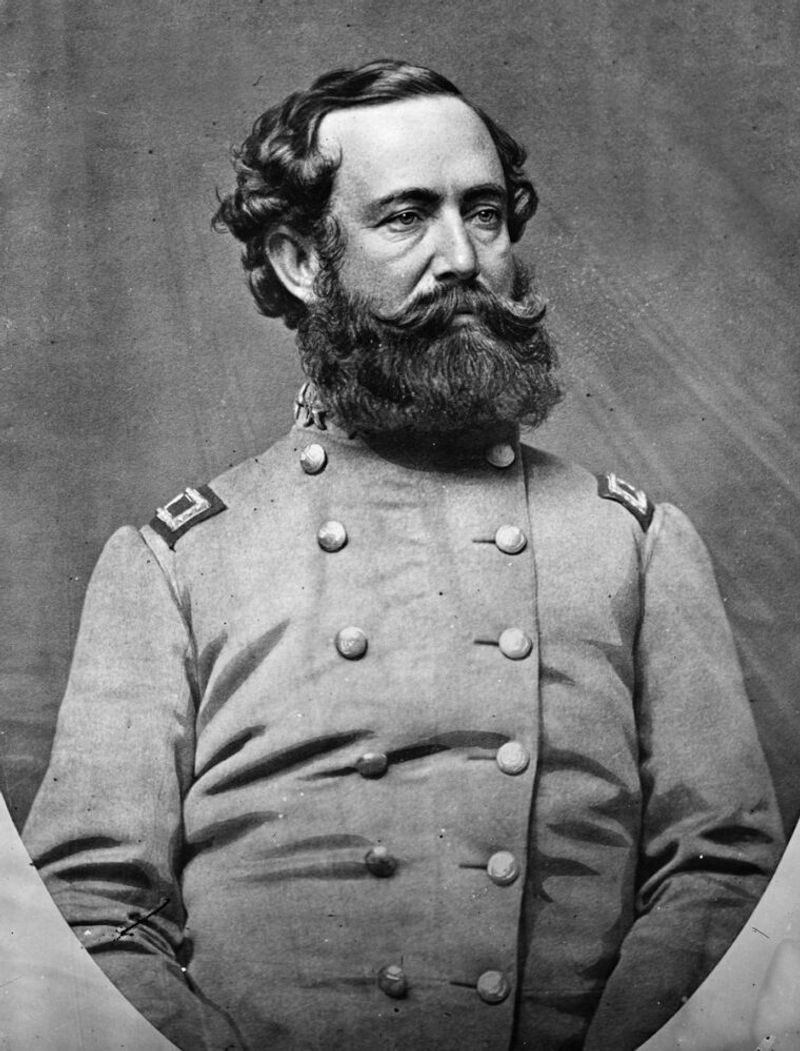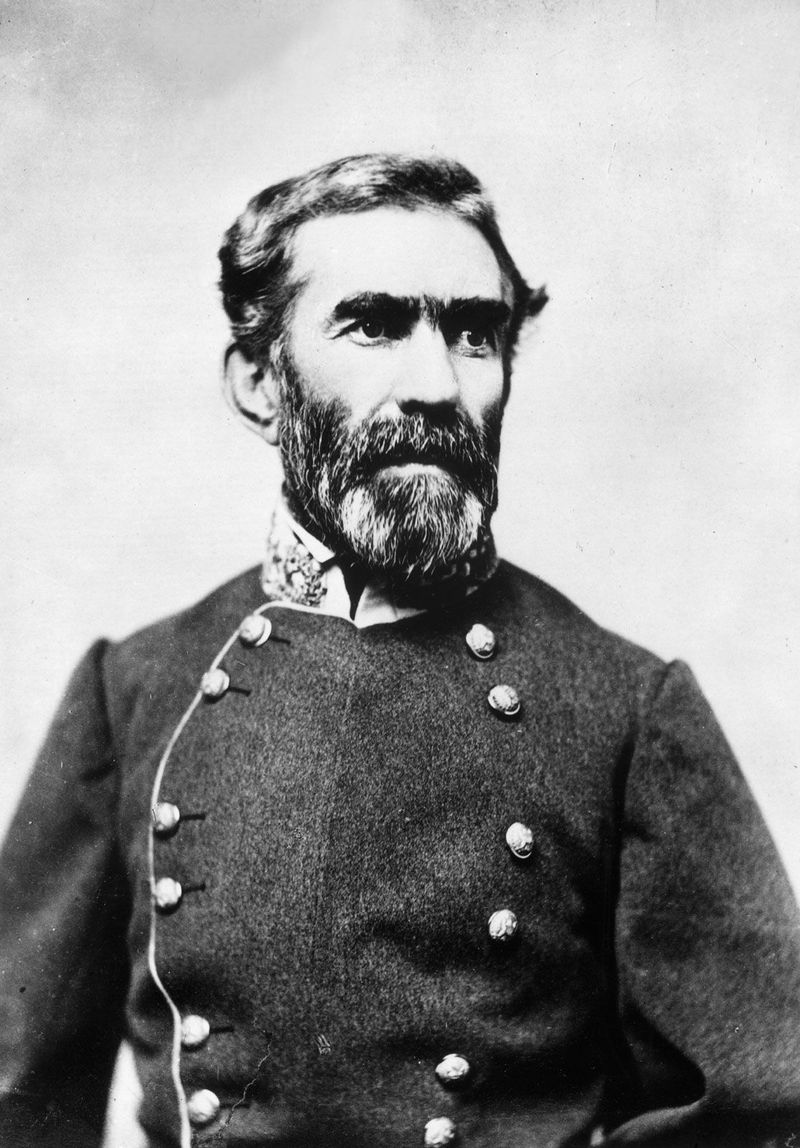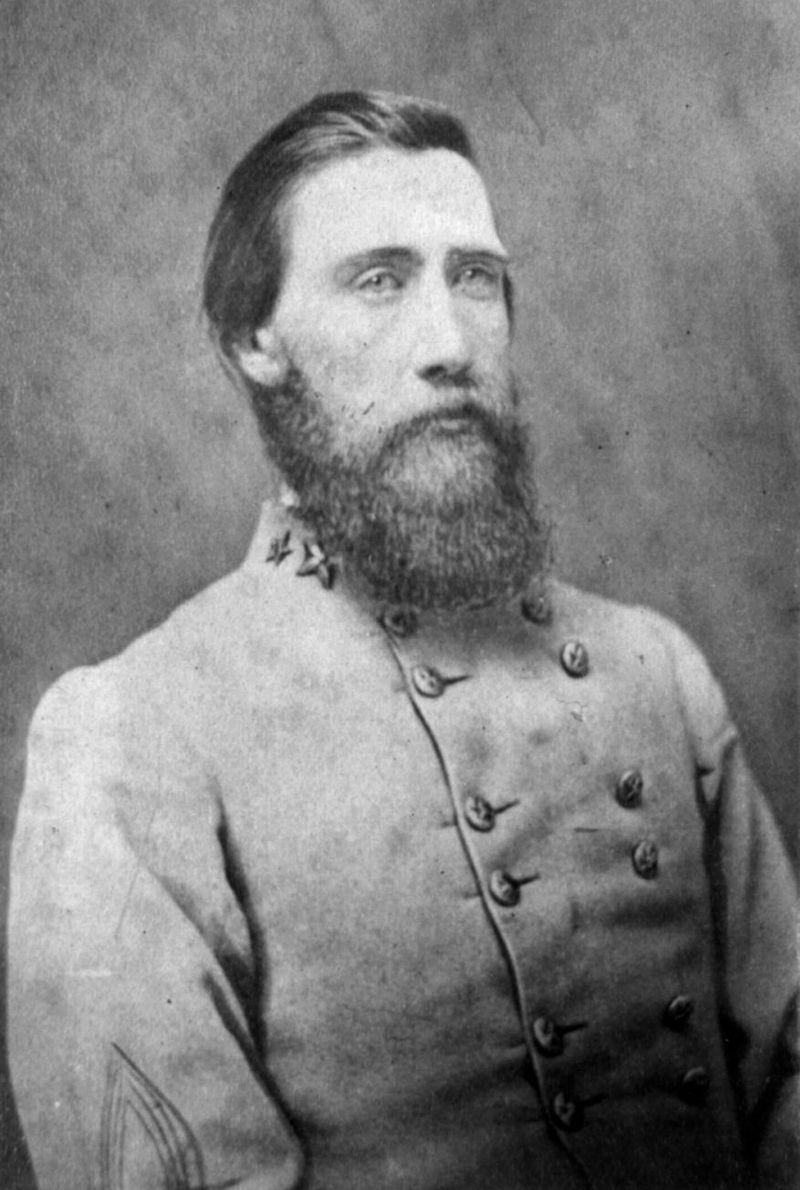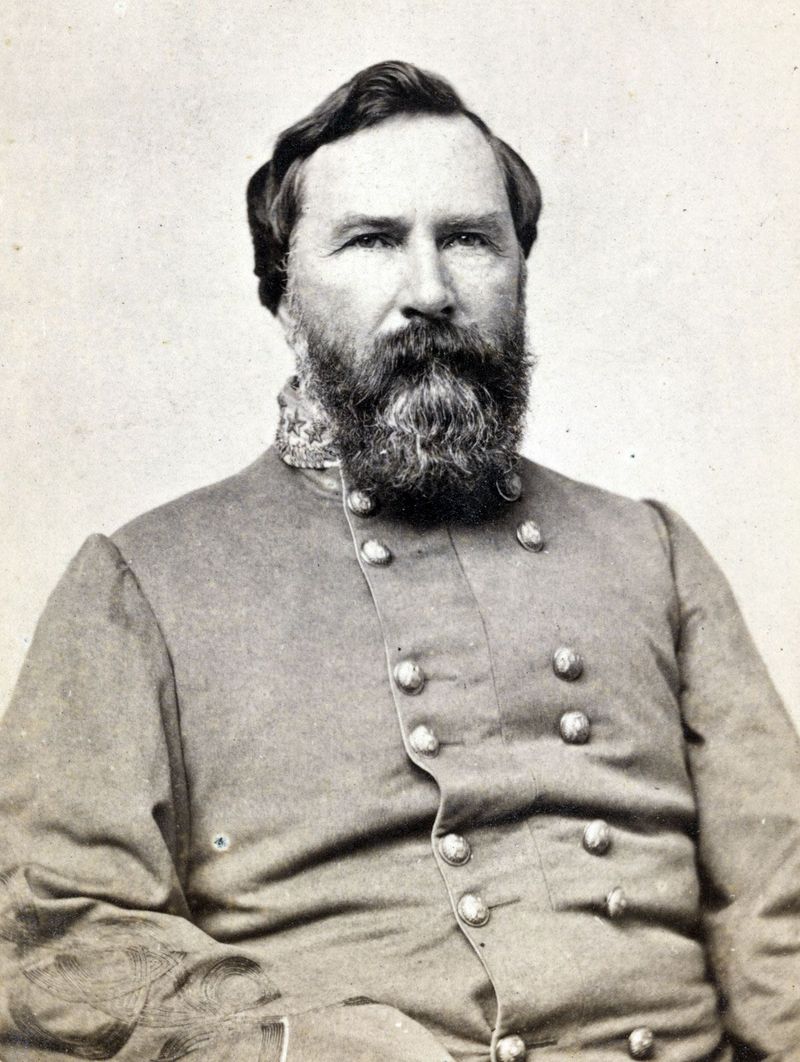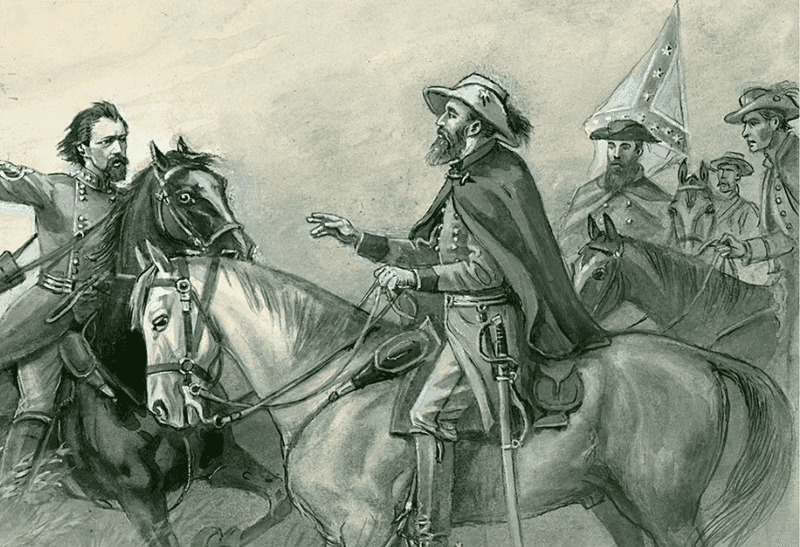The American Civil War was a defining moment in United States history, marked by a multitude of infamous generals who played pivotal roles in shaping the conflict. These twenty generals, split between the Union and the Confederacy, were known for their strategic brilliance, aggressive tactics, and sometimes controversial decisions. The following sections delve into the careers and personalities of these notorious figures, each leaving an indelible mark on the course of American history.
1. Union Generals: Ulysses S. Grant
Ulysses S. Grant, a determined and relentless leader, was instrumental in the Union’s victory. His Overland Campaign in 1864, marked by fierce battles and large casualties, ultimately weakened the Confederacy. Despite the human toll, Grant’s strategy proved effective in the long run, leading to the surrender at Appomattox.
Appointed as General-in-Chief, his focus on total warfare brought the South to its knees. Later, he became the 18th President of the United States, navigating Reconstruction.
His leadership style was characterized by persistence and an unwavering commitment to victory, making him a central figure in the war.
2. Union Generals: William Tecumseh Sherman
William Tecumseh Sherman is best remembered for his “March to the Sea,” a campaign that epitomized total war. His forces captured Atlanta in 1864, devastating Georgia with scorched-earth tactics that aimed to cripple the Confederate war effort.
Sherman’s methods were controversial but undeniably effective, causing significant disruption. His approach showcased a brutal efficiency that became a hallmark of modern warfare.
After the war, Sherman served as Commanding General of the U.S. Army, his legacy as a strategist and tactician cemented in military history. His bold actions and tactics remain studied today.
3. Union Generals: George McClellan
George McClellan, known for his organizational skills, often perplexed Lincoln with his cautious nature. Tasked with leading the Army of the Potomac, he excelled in training but faltered in aggression.
His hesitance at the Battle of Antietam allowed Confederate forces to withdraw, frustrating Union efforts. McClellan’s relationship with Lincoln was strained, leading to his eventual removal.
Despite his military setbacks, McClellan’s attention to detail laid the foundation for future Union successes. He later ran against Lincoln in the 1864 Presidential election, underscoring his complex legacy.
4. Union Generals: Ambrose Burnside
Ambrose Burnside, known for his distinctive facial hair, is remembered for his tactical missteps. His leadership during the Battle of Fredericksburg resulted in a devastating defeat.
Burnside’s ambitious “Mud March” failed due to poor weather and planning, exemplifying his shortcomings as a strategist. Despite these failures, his commitment to the Union cause was unwavering.
After the war, Burnside served as a politician, continuing to influence public affairs. His legacy is a blend of military failure and steadfast dedication.
5. Union Generals: Philip Sheridan
Philip Sheridan, an aggressive cavalry commander, played a crucial role in the Union’s success with his fiery tactics. His campaign in the Shenandoah Valley, often referred to as “The Burning,” aimed to destroy Confederate resources.
Sheridan’s relentless pursuit of enemy forces exemplified his tenacity and strategic brilliance. Known for his quick decision-making, he became one of Grant’s most trusted generals.
His post-war career saw him overseeing Reconstruction efforts in the South, where his strong leadership style continued to influence American military policy. Sheridan’s legacy is one of aggressive and effective warfare.
6. Union Generals: Benjamin Butler
Benjamin Butler, a controversial figure, was notorious for his strict occupation policies in New Orleans. His “Woman Order” caused outrage, reflecting his harsh approach to military governance.
Despite criticism, Butler’s administrative skills were effective in maintaining order. His actions, however, earned him disdain in the South.
Post-war, Butler pursued a political career, advocating civil rights and social reforms. His complex legacy includes both condemnation and praise, marking him as a polarizing figure in Civil War history.
7. Union Generals: John Pope
John Pope’s tenure as a Union general is marked by his overconfidence and defeat at the Second Bull Run. His arrogant demeanor alienated both superiors and subordinates.
Pope’s strategic failures during the campaign resulted in a significant Union setback, leading to his removal from command. Despite these shortcomings, he continued to serve in various military roles.
His legacy is defined by his bravado and the catastrophic consequences of his leadership at Bull Run, underscoring the challenges faced by Union forces during the war.
8. Union Generals: Joseph Hooker
Joseph Hooker, known for his audacious personality, is often associated with defeat at Chancellorsville. His leadership style combined bold planning with personal vices, such as heavy drinking.
Despite setbacks, Hooker’s reforms improved troop morale and organization within the Union Army. His defeat by Lee’s forces, however, overshadowed these achievements.
After the war, Hooker’s reputation remained mixed, with both admirers and detractors acknowledging his impact on military operations.
9. Union Generals: George Meade
George Meade, the victor of Gettysburg, is often overshadowed by other Union leaders. His decisive actions during the battle secured a turning point for the Union.
Despite his success, Meade faced criticism for not pursuing Lee’s retreating army aggressively. His cautious nature often led to tension with superiors.
Meade’s post-war career involved various military commands, solidifying his reputation as a competent if understated leader. His contributions to the Union victory remain significant.
10. Union Generals: John Schofield
John Schofield’s military career is marked by his role in the Atlanta Campaign and Reconstruction. His actions in battle drew both praise and controversy.
Schofield’s post-war work included efforts to rebuild Southern states, navigating complex political landscapes. His decisions often sparked debate among contemporaries.
Known for his diplomatic skills, Schofield’s contributions to military strategy and post-war policy continue to be studied by historians.
11. Confederate Generals: Robert E. Lee
Robert E. Lee, revered for his tactical genius, remains a complex figure in American history. His decision to side with the Confederacy was driven by loyalty to his home state of Virginia.
Lee’s aggressive strategies led to both victories and costly defeats, such as at Gettysburg. His leadership style emphasized honor and duty.
After the war, Lee advocated reconciliation, becoming a symbol of Southern pride and loss. His legacy is both celebrated and scrutinized, reflecting the nation’s divided memory of the Civil War.
12. Confederate Generals: Thomas “Stonewall” Jackson
Thomas “Stonewall” Jackson’s steadfastness in battle earned him his famous nickname. His leadership during the Shenandoah Valley Campaign showcased his military acumen.
Jackson’s death at Chancellorsville was a significant blow to the Confederate cause, highlighting his role as a key strategist. His strict discipline and religious fervor added to his legendary status.
In Southern memory, Jackson remains a revered figure, symbolizing both the valor and tragedy of the Confederate fight.
13. Confederate Generals: Nathan Bedford Forrest
Nathan Bedford Forrest, a brutal and effective cavalry leader, is a controversial figure due to his alleged role in the Fort Pillow Massacre.
Forrest’s tactics emphasized mobility and surprise, causing havoc among Union lines. Despite his military prowess, his post-war actions, including founding the Ku Klux Klan, taint his legacy.
His complex persona, combining military brilliance with notorious actions, leaves a conflicted historical record.
14. Confederate Generals: J.E.B. Stuart
J.E.B. Stuart, known for his flamboyant personality, was a key cavalry commander for the Confederacy. His delayed arrival at Gettysburg marred his reputation.
Stuart’s scouting and reconnaissance skills were crucial to Confederate strategies, yet his absence at critical moments led to questions about his priorities.
Despite these controversies, Stuart’s legacy as a daring and colorful leader endures in Civil War history.
15. Confederate Generals: Braxton Bragg
Braxton Bragg’s harsh discipline and difficult personality made him unpopular among his peers. His leadership during the Chattanooga Campaign resulted in Confederate defeat.
Bragg’s strategic decisions were often questioned, leading to discord within his command. Despite these challenges, he remained a dedicated advocate for the Southern cause.
His legacy is marked by his contentious relationships and mixed military record, reflecting the internal struggles of the Confederate leadership.
16. Confederate Generals: John Bell Hood
John Bell Hood’s aggressive nature defined his military career. His leadership during the Franklin-Nashville Campaign resulted in devastating losses for the Confederacy.
Hood’s willingness to engage in direct combat often led to high casualties, reflecting both his bravery and impetuousness. His actions hastened the demise of the Army of Tennessee.
Despite his failures, Hood’s determination remains a notable aspect of his legacy, highlighting the complexities of Confederate command.
17. Confederate Generals: A.P. Hill
A.P. Hill, a courageous yet often ailing commander, played a vital role in key battles. His bravery was evident throughout his service, even as illness frequently sidelined him.
Hill’s death in the war’s final days marked a symbolic end to the Confederacy’s struggle. His dedication to duty was unwavering, despite personal challenges.
His legacy is one of valor tempered by vulnerability, reflecting the human cost of the Civil War.
18. Confederate Generals: James Longstreet
James Longstreet, often called Lee’s “Old War Horse,” was a trusted Confederate general. His performance at Gettysburg drew criticism for perceived slowness.
Longstreet’s advocacy for defensive tactics often clashed with Lee’s aggressive strategies, highlighting internal conflicts within Confederate command.
Post-war, Longstreet’s cooperation with Reconstruction further complicated his legacy, earning both scorn and respect.
19. Confederate Generals: Jubal Early
Jubal Early, a fiery and outspoken leader, was known for his audacious 1864 raid on Washington, D.C. His actions aimed to divert Union forces and bolster Confederate morale.
Early’s post-war rhetoric contributed to the Lost Cause narrative, shaping Southern memory of the conflict. His combative personality left a lasting impression.
Despite military setbacks, Early’s influence on Confederate ideology and memory is significant, cementing his place in history.
20. Confederate Generals: Wade Hampton III
Wade Hampton III, a fierce cavalry commander, played a significant role in Confederate military operations. His leadership was marked by bold and decisive action.
After the war, Hampton became a prominent political figure, advocating for Southern interests and segregationist policies. His transition from military to political life reflected the broader shifts in Southern society.
Hampton’s legacy is a complex blend of military skill and controversial post-war politics, reflecting the enduring tensions of the Civil War era.
